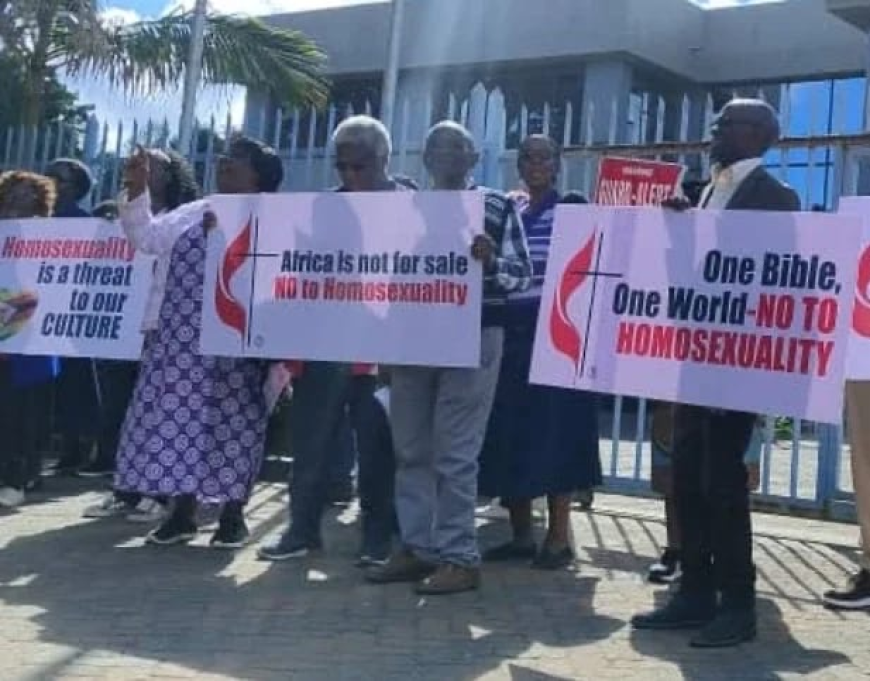Leadership and LGBTQ Policies Spark Crisis in Liberia’s United Methodist Church

The United Methodist Church (UMC) in Liberia is in turmoil following deep divisions over LGBTQ policies, same-sex marriage, and church leadership. Tensions have erupted after Bishop Samuel Quire refused to convene a special session of the Liberia Annual Conference (LAC) to discuss controversial decisions made at the UMC General Conference.
The General Conference legalized same-sex marriage and allowed the ordination of LGBTQ clergy, sparking outrage among many Liberian Methodists who view these changes as unbiblical.
In February 2024, the LAC agreed to hold a special session to allow the Liberian delegation to report on the General Conference and to decide the future of the church in light of the new policies. However, since returning from the General Conference, Bishop Quire has refused to call the session, claiming it is within his discretion.
This has caused an outcry from church leaders who argue that the decision to hold the session was binding and not optional.
The General Conference also introduced a “Regionalization Plan,” allowing regions to develop their own constitutions based on local culture. While this plan would permit the UMC in Liberia to opt out of same-sex marriage practices, critics fear it opens the door to other unbiblical actions, such as LGBTQ ordination and progressive definitions of marriage.
Church leaders argue that the Regionalization Plan would force them to be part of a denomination endorsing practices they fundamentally oppose.
Senior leaders like Rev. Dr. Jerry Kulah and Rev. Dr. George Wilson have voiced strong opposition to the bishop’s refusal to call the special session.
They insist that the church must convene to determine its future direction rather than allowing one individual to dictate its course.
These leaders believe the session is necessary to address concerns about the church’s stance on LGBTQ issues and broader theological matters.
Opponents accuse Bishop Quire of using intimidation tactics to silence dissent. Clergy who have pushed for the special session, including Rev. George Wilson Jr., have been suspended, while others have been dismissed from their roles. Critics claim these actions are in violation of the church’s constitution and Liberia’s labor laws, further deepening divisions within the church.
In addition, Bishop Quire has faced accusations of using the United Methodist Radio Station (ELUM 98.7FM) to promote his agenda and discredit his opponents. Originally established to spread the gospel, the radio station is allegedly being used as a platform to support the Regionalization Plan and criticize those who oppose the bishop’s stance.
The bishop has also been accused of censoring the official report from the Liberia delegation to the General Conference. Church leaders claim that Bishop Quire is blocking the report’s release to the Annual Conference unless it aligns with his progressive views, preventing open discussion and transparency within the church.
As the conflict escalates, some church leaders are contemplating legal action against the bishop for what they see as his autocratic leadership and refusal to follow the church’s democratic processes.
These leaders argue that the future of the UMC in Liberia should not be decided by one individual but by the collective will of the Annual Conference.
Calls for the special session have been echoed by the Liberia Council of Churches (LCC) and other Christian leaders, but Bishop Quire remains firm in his refusal.
The church in Liberia now faces a critical moment as it debates whether to remain part of the global UMC or to break away to preserve its conservative, biblical values.
The decisions made in the coming months will shape the future of the UMC in Liberia. With divisions deepening over LGBTQ policies, church governance, and biblical teachings, the church is on the brink of a major transformation that could redefine its place in both the national and global Methodist community.
What's Your Reaction?










































































